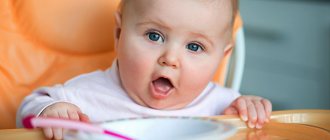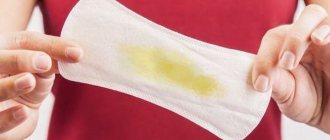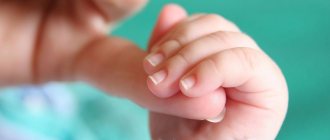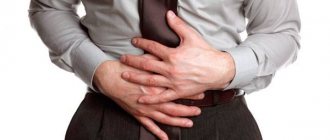For adults, hiccups are a rare but quite common occurrence. When a child hiccups after feeding, any young mother begins to worry and “wind up” herself. The most severe symptom occurs in a newborn, who has a special sensitivity to literally everything. In order to save young mothers from panic, you need to know why hiccups occur and what methods exist to help the child.
General information
One of the important parts of the body involved in the respiratory process is the diaphragm, which can move synchronously with the chest muscles. In the process, the lungs are filled with air. A muscular plate, which is called the diaphragm, is located between the peritoneum and the chest cavity. One of its purposes is to support the correct location of the organs located above.
Due to involuntary sharp contractions of the diaphragm, hiccups appear. The vocal cords close, causing a characteristic sound to be heard. In adults, the situation occurs rarely and does not cause concern; the person is accustomed to its manifestation. However, in a child, the muscle tissue and nerve endings of the diaphragm are not sufficiently developed. Therefore, the baby is often in pain and cries. Most often, hiccups in newborns begin after feeding.
Causes
Typically, hiccups in infants last about ten minutes. Why does it happen in a healthy baby?
- Overeating and improper feeding. Almost the most common factor leading to hiccups. And it makes no difference whether the child is breastfed or is “artificial” (artificial formula is used). With overfeeding, the baby's stomach stretches and intra-abdominal pressure increases. This acts on the diaphragm, causing hiccups. Feeding your baby for hours at a time can lead to overeating. If by the appointed time the child is already hungry, then the portion of food that he will eat will be more than necessary.
- Swallowing air (aerophagia). It occurs more often in bottle-fed infants. The situation is possible if the bottle is selected incorrectly. If the hole in the nipple is very large, then the baby takes in some additional air along with the food. However, this factor also occurs in breastfeeding, with the mother’s milk arriving quickly. Then, while eating, the child also swallows air. Once in the stomach, the mixture of gases tends upward, pressing on the diaphragm, thereby provoking hiccups. The latter begins both during meals and later. Swallowed air in a baby often causes intestinal colic.
- Bloating. In cases where the mother has eaten some new product, the child may experience excess gases - flatulence. Gases can stretch the intestinal loops, which causes them to move upward. The nerve endings of the diaphragm become irritated, causing the baby to hiccup. Since the digestive system of a small child is imperfect, the problem is most common in young children.
- Hypothermia. Due to poorly developed thermoregulation in an infant, he is unable to maintain body temperature on his own. It is important for mom to remember this and periodically feel her limbs.
- Increased emotional state. For infants, all new sensations are stressful. They are frightened by new surroundings, any unfamiliar person causes anxiety, all loud or unexpected sounds heard by children can cause them shock. The nervous system of babies is unstable, they easily become stressed. This, in turn, provokes an involuntary and sharp contraction of the diaphragm, resulting in an unpleasant symptom.
Methods of helping a child
What action should you take if your baby hiccups after feeding? The question becomes an edge at the moment when the symptom has already appeared. To help your child, do the following:
- give the correct position. A nursing mother needs to take the baby in her arms, press her tummy towards her and hold her vertically for about 20 minutes - in a “column”. It is necessary to wait until the excess air in the child comes out of the stomach. That is, until the characteristic sound. The hiccups will stop;
- drink water. A simple remedy for helping a hiccupping baby is warm water. It should be given to the baby to drink;
- Perform a light tummy massage in a circular motion to help get rid of bloating and gas;
- cause a burp. Place it on your knee and hold it with your palm in the chest area. Then pat the baby a little between the shoulder blades and after a while make light strokes. Don't forget to support your child's head. Next, tilt the baby forward a little. Movements must be smooth and cannot be performed abruptly. Another way to induce burping is to place the baby on your shoulder. The baby's chest is pressed against it, then you need to wait a while. When you hear the sound of a burp, the baby should be placed in a position that is comfortable for him;
- change your diet. If a newborn hiccups after feeding and this happens two or three times in a row, regardless of whether he is breastfed or bottle-fed, then the child should be allowed to eat more often and portions reduced;
- prevent freezing. To prevent the child from hiccupping, hypothermia must not be allowed, as this also contributes to the occurrence of the symptom. It is easy to determine whether a child is cold; feel the arms and legs. If the limbs are cold, they need to be warmed with the warmth of the mother’s hands, and then the baby needs to be wrapped up.
It is important to establish the cause of frequent hiccups, as well as regurgitation after breastfeeding. The same applies to feeding a baby formula. It is possible that a small child has a congenital intolerance to the components of artificial feeding, which is why the unpleasant symptom is annoying.
Regurgitation after each feeding carries a similar danger, read the information.
How to eliminate hiccups in children
A newborn requires careful, attentive treatment. It is important to take proper care of it and know how you can help your baby with hiccups.
A new mother may be confused the first time she encounters hiccups in her newborn. There are simple and effective ways.
If the baby begins to hiccup while eating (breastfeeding, bottle-feeding), it is recommended to stop feeding. Take the baby in your arms in an upright position, gently press him to you, holding the baby's head. Hold for 5-10 minutes. The baby should burp. Excess air will come out of the stomach, which will make it easier for the baby.
Try to prevent children from overeating. After feeding, hold the baby upright. You can put the baby on your tummy.
Tips for parents
Parents should not panic if their newborn develops hiccups. It grows, the body forms, adapts to a new life. Follow these tips to help your child cope with the symptom:
- Pay close attention to how your newborn latch onto the breast. If he constantly hiccups after eating, he may be uncomfortable and may be swallowing air during feeding. Try changing your breastfeeding position.
- For an infant who can drink from a bottle, offer warm, boiled water. The liquid will help stop the hiccups. It changes the rhythm of breathing and helps calm the irritated nerve of the diaphragmatic muscle.
- If a newborn hiccups from hypothermia, it is necessary to warm it up. Wrap the baby in a baby blanket and throw on a warm vest. Offer your baby to eat warm formula (for artificial babies) and breast milk. He will warm up faster and stop hiccupping.
- To understand if your baby is cold, touch his arms, legs, and nose. If they are cool, the newborn is cold.
- If the reasons that provoke the baby to hiccup are loud music, noises, very bright lights, blinking - eliminate the factors. Go to a quiet place, calm him down. Mother's voice has a beneficial effect on the child. Try to distract yourself by singing.
- When a newborn cries, he swallows air through his mouth, which ends up in the stomach. This leads to expansion of the abdomen, pressure on the diaphragmatic muscle, and convulsive contraction of the chest occurs. Try to avoid prolonged crying and calm your baby down.
- Hiccups from the fright of strangers, to which the baby is not accustomed, are eliminated by limiting visiting guests. During the first month of life, it is recommended not to visit noisy, crowded places or festive dinners.
How to avoid manifestations
Hiccups after eating in a child are prevented by prevention.
- Feeding on demand. Feeding your baby should not happen by the clock, but on demand. He will not suck too quickly, and will not “pounce” greedily on food. Time intervals need to be reduced, and food in quantitative terms should become smaller.
- Use of hindmilk. Before feeding, express foremilk if there is a large flow of milk. Because for feeding a baby, hind milk is more nourishing.
- Correct latching on the chest. Make sure that the baby fully grasps not only the nipple, but also the areola. If the baby is artificial, then you need to raise the bottle so that the nipple is filled with the mixture. It is worth paying attention to sounds during feeding; swallowing sounds are acceptable
- Calm baby while feeding. You can't feed your baby when he's fussy. First you need to calm him down.
- Maintaining the temperature in the room. Avoid hypothermia in the baby. Constantly monitor the temperature in the house. If your baby is cold, you should immediately warm him up.
- Diet. During lactation, the baby's mother needs to adhere to a diet, especially in the first few months. It is important to avoid foods that contribute to gas formation.
- Adopting the “column” position. After feeding, you should hold the baby in an upright position, lightly patting him on the back so that he burps air.
To prevent hiccups, before feeding (about 5 minutes), place the baby on his tummy. This is necessary to release gases accumulated in the child’s stomach. And immediately after feeding, you can’t put him on his back.
Artificial children are extremely sensitive to the correct choice of pacifier. As mentioned above, the hole in it should not be large; babies should suck out the mixture themselves. The modern medical industry produces nipples with an ergonomic shape and an air valve.
Prevention
It is not difficult to prevent the occurrence of hiccups after each meal by finding out the cause of the phenomenon. Overeating, as the cause of the reflex, can be easily eliminated by reducing the portion of the formula or reducing the time the baby is put to the breast.
Before eating, it is recommended to place the baby on his stomach. It is important to adjust the position of the baby while eating so that air does not enter with breast milk. You may need to hold your baby at an angle or press him closer to your chest. The baby should grasp the areola around the nipple for greater sucking efficiency.
It is important to remain quiet during feeding so that the newborn is not distracted. Light and noise can frighten the child, distract him from eating and cause him to swallow air.
If the mother has a large amount of foremilk, it is necessary to express some of it so that the baby consumes the required amount of hindmilk. It is better to feed the baby on demand, but reduce the portion.
Mom should adjust her diet by removing gas-causing foods from her diet. Fried foods, legumes, raw fruits and vegetables are not recommended.
In babies who take food from a bottle, the cause may be the nipple. There is a wide range of anti-colic bottles and nipples with a valve on the market that prevent the baby from trapping air and limit the flow of formula. After formula, the baby may hiccup if the mother significantly exceeds the required amount of nutrition. It is contraindicated to give more food than is appropriate for the child’s age.
It is not recommended to put your baby to bed immediately after eating. It is better to hold the newborn upright for several minutes, waiting for a burp.
All newborn children, and especially babies who are less than a month old, hiccup. Often, a reflex contraction of the diaphragm begins after eating. With age, the disorder is less likely to occur if parents follow the rules of feeding the baby, avoiding overeating. Frequent and prolonged hiccups may indicate pathology. In this case, you need to consult a doctor to determine the cause and eliminate it in time.
The appearance of hiccups in a child in the first months of life cannot be called a rare occurrence. For the first time, this symptom can occur during intrauterine life, and it is associated, first of all, with the immaturity of the development of the baby’s nervous and digestive system. Most often, newborns experience hiccups during and after feeding. Why does this happen, is it dangerous and how to help the little one?
The occurrence of hiccups after eating is caused by the functional immaturity of the digestive tract of a newborn baby, as well as disturbances in feeding the baby.
Provoking factors include:
- Fast feeding, in which the baby swallows a lot of air.
- Violation of breastfeeding technique.
- The mother has an excess of milk when the baby does not have time to swallow it and food comes in very quickly and in large quantities.
- Violations of the diet of a nursing mother, which will result in increased gas formation.
- Incorrect transfer of a baby to formula.
- Incorrectly selected pacifier.
- Laying the baby down immediately after feeding (the air that the baby swallowed remains in the stomach).
- Intestinal colic.
In some cases, hiccups after eating, especially if it does not stop for a long time and is not the only warning symptom, may indicate a pathology of the toddler’s digestive tract, for example, esophageal disease. Much less often, hiccups appear when the central nervous system is damaged, for example, due to a birth injury or an abnormality in brain development.
In addition, this symptom appears during intoxication and infections that affect the brain. In this case, hiccups are not the only manifestation, but will be accompanied by an increase in temperature, a decrease in the child’s weight, lethargy, apathy, regurgitation, constant crying and other symptoms.
The danger of hiccups
Most often, the phenomenon is safe and does not have any consequences, occurs occasionally and lasts up to 15 minutes. But sometimes a newborn hiccups after each feeding and becomes restless and capricious. This means that hiccups are causing him pain. When a symptom continues for a long time and appears frequently, then this is a possible signal of a disease.
Continuous frequent hiccups sometimes appear due to diseases of the respiratory system, heart or gastrointestinal tract. In these cases, it is important to examine the baby, establish an accurate diagnosis and begin treatment.
Often, preventive measures do not help, and hiccups in infants do not go away. Sometimes this is a sign of the following diseases:
- trauma during childbirth;
- dysfunction of the nervous system;
- various inflammations, as well as infections;
- diseases of the digestive organs;
- diseases of the cardiovascular system;
- injury or blow to the spinal cord.
In some cases, diseases of the lungs or intestines can cause irritation of the diaphragm that separates the esophagus from the stomach, resulting in hiccups. There is a concept called “persistent hiccups.” In this condition, the baby may choke, cry, and have disturbed sleep. This is typical for pathologies of the spinal cord or encephalopathy. The conditions are rare, but moms and dads need to remember that they should contact their pediatrician on time.
Disease-related causes of hiccups in newborns
- Parasites. Most often they occur in older children, but this possibility should not be ruled out. It is better to take appropriate tests to identify worms in the body and make sure that they are not there, than to ignore this phenomenon and leave them to multiply without taking appropriate treatment.
- Disturbances in the functioning of the brain and spinal cord. They can be caused by a difficult birth, when the child has oxygen starvation, that is, hypoxia. If the course of your pregnancy was difficult, and the birth did not go very smoothly, you definitely need to visit a neurologist, do a tomogram, ultrasound and other tests to make sure that everything is in order or, otherwise, undergo the appropriate course of treatment.
- Problems with internal organs: liver, stomach, pancreas and other elements of the digestive system. Be sure to go to an appointment with a gastroenterologist and get all the necessary tests.
- Infections in the body also cause hiccups. A recent illness can cause complications and cause contraction of the diaphragm. The body can thus respond to the ongoing inflammatory process. Sometimes pneumonia is also accompanied by similar symptoms, so at the slightest suspicion of pneumonia, you should definitely run to the doctor and undergo an appropriate examination.
Summary
Parents must know what to do if their newborns hiccup after feeding. Also, do not forget that the symptom in the vast majority of cases is not a disease. Hiccups pose a serious danger if they last long, and even more so if they occur constantly after feeding.
The causes of hiccups may lie in diseases such as pneumonia or pathology of the central nervous system. Do not forget that helminths can also cause symptoms. Such indicators should under no circumstances be ignored. Contacting a pediatrician is absolutely necessary.
Prevention
If the appearance of hiccups was caused by a violation of the baby’s diet, it is important to prevent the appearance of such a symptom in the future. To do this you should:
- Feed the baby so that his head and chest are slightly higher than his lower body.
- Wait a while after feeding for the air and excess milk to regurgitate, and only then place it on a horizontal surface.
- Feed the little one in a calm environment, without waiting for too much hunger, so that the little one does not eat too “greedily”.
- When feeding with formula, give food in small quantities, and also pay attention to the size of the hole in the nipple.
- When breastfeeding and colic, exclude gas-forming foods, such as cabbage and legumes, from the mother's menu.









